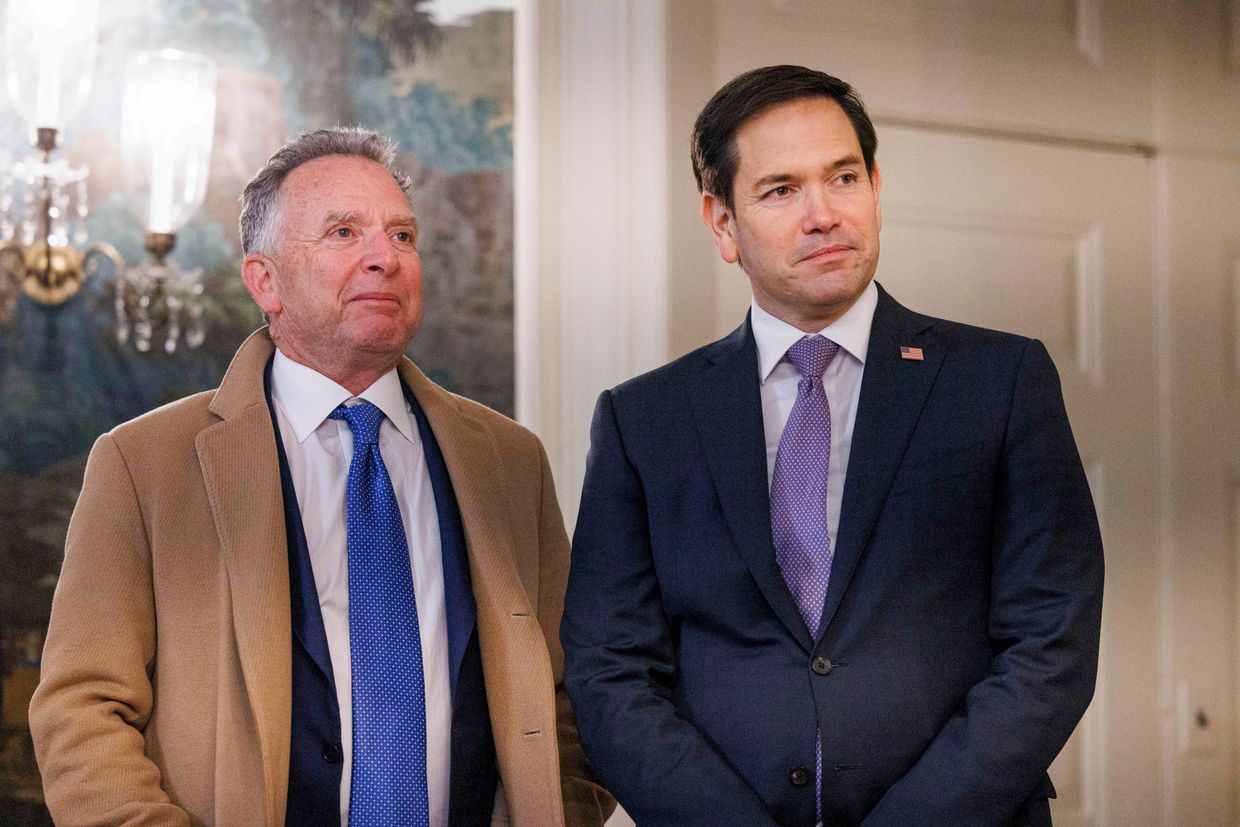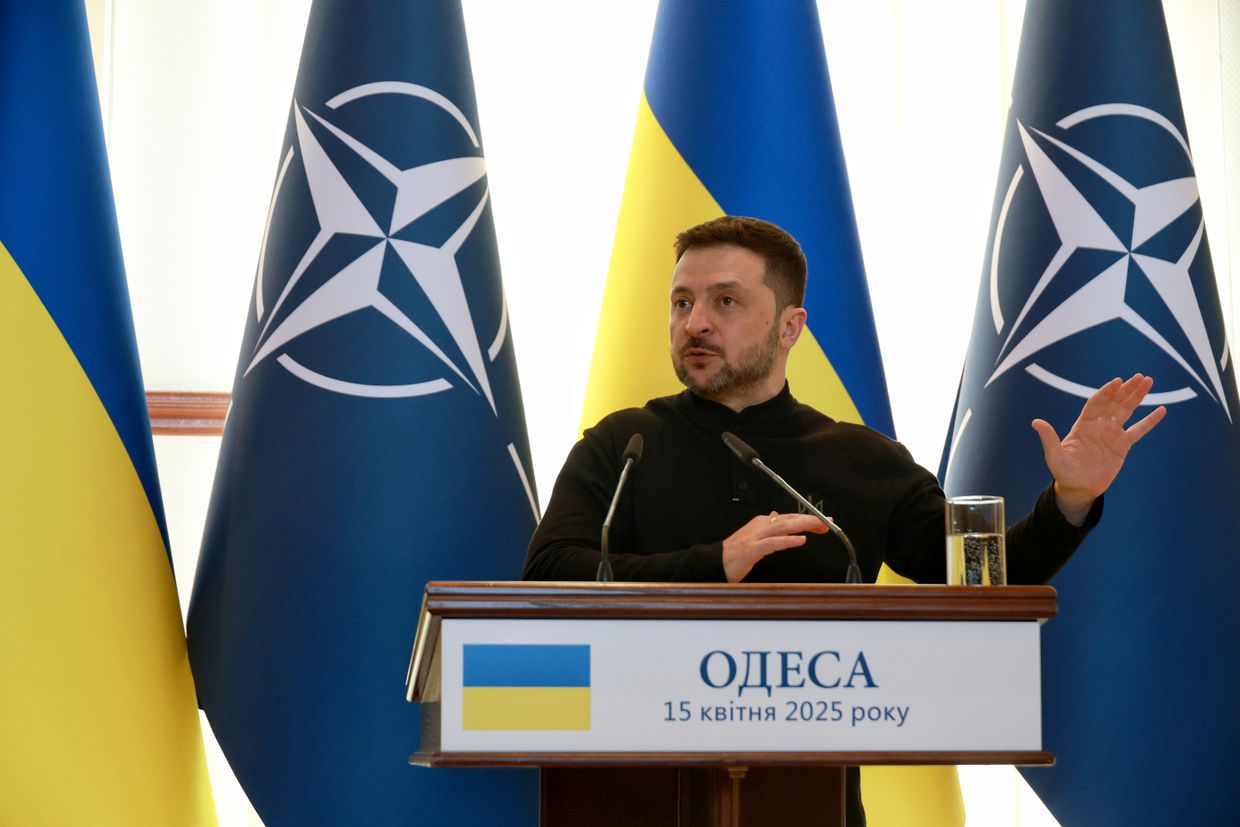The visit marks Merz’s first trip to Ukraine, and the first time all four leaders have travelled there together.
The number includes 1,310 casualties that Russian forces suffered over the past day.
"We have a plan B and a plan C. But our focus is plan A, the essence of which is to get everyone's support" for Ukraine's accession, EU foreign policy chief Kaja Kallas said.
"(T)he presence at the Victory Parade of a country that bombs cities, hospitals, and daycares, and which has caused the deaths and injuries of over a million people over three years, is a shame," Polish Prime Minister Donald Tusk said.
"According to the participants of the performances, their goal is to remind the civilized world of the barbaric actions of Moscow, which for many years and decades has systematically violated international law," a source in Ukraine’s military intelligence agency (HUR) told the Kyiv Independent.
"I have great hope that an agreement for a ceasefire in Ukraine will be reached this weekend," German Chancellor Friedrich Merz said on May 9, shortly before traveling to Kyiv alongside the leaders of France, Poland, and the U.K.
U.K. Prime Minister Keir Starmer, French President Emmanuel Macron, German Chancellor Friedrich Merz, and Polish Prime Minister Donald Tusk will arrive in Kyiv early on May 10.
The United States embassy in Kyiv on May 9 issued a warning that Russia could launch "a potentially significant" attack in the coming days, despite Putin's self-declared Victory Day "truce."
The sanctioned oil tankers have transported over $24 billion in cargo since 2024, according to Downing Street. The U.K. has now sanctioned more shadow fleet vessels than any other country.
The sanctions list includes 58 individuals and 74 companies, with 67 Russian enterprises related to military technology.
Washington and its partners are considering additional sanctions if the parties do not observe a ceasefire, with political and technical negotiations between Europe and the U.S. intensifying since last week, Reuters' source said.
Despite the Kremlin's announcement of a May 8–11 truce, heavy fighting continued in multiple regions throughout the front line.
Rubio, Witkoff to travel to France this week for Ukraine talks

U.S. Secretary of State Marco Rubio and Special Envoy Steve Witkoff are set to travel to Paris later this week for high-level meetings on ending the war in Ukraine, the U.S. State Department said on April 16.
Rubio and Witkoff will be in the French capital from April 16 to 18 for talks with their European counterparts to “advance President Trump’s goal to end the Russia-Ukraine war,” according to the statement.
Witkoff is expected to meet directly with French President Emmanuel Macron, while Rubio will hold separate discussions with French Foreign Minister Jean-Noel Barrot, Politico earlier reported on April 16, citing two undisclosed official sources. After the meetings, Rubio is scheduled to depart for Africa.
The visit comes on the heels of Witkoff's April 11 meeting with Russian President Vladimir Putin in St. Petersburg. The talks reportedly focused on a potential ceasefire in Ukraine, with Witkoff later describing the discussion as "compelling."
Speaking to Fox News on April 14, Witkoff said the two sides explored a possible deal centered on the status of "so-called five territories."
Though Witkoff did not name the territories directly, he appeared to refer to Crimea, illegally annexed by Russia in 2014, and the partially occupied Donetsk, Luhansk, Zaporizhzhia, and Kherson oblasts. Moscow declared the annexation of the latter four regions in 2022, despite not fully controlling any of them.
"This peace deal is about these so-called five territories," Witkoff said. "But there's so much more to it. I think we might be on the verge of something that would be very important for the world at large."
France is leading the European push for stronger security guarantees for Ukraine, including the deployment of a so-called "reassurance force" if hostilities are paused.
Macron has publicly backed the idea of sending European troops to Ukraine — not for combat, but to help train forces, rebuild infrastructure, and reinforce stability along the Dnipro River, far from the front line.
The reassurance force, first proposed by U.K. Prime Minister Keir Starmer in early March, is backed by a "coalition of the willing" involving some 30 countries, six of which voiced readiness to commit their troops.

Most Popular

After 3 years of full-scale war in Ukraine, Europe announces plan to ban all Russian gas imports

Ukraine, Europe's ceasefire proposal includes US security guarantees, no recognition of Crimea, Reuters reports

Journalist Roshchyna's body missing organs after Russian captivity, investigation says

After Russia's deadly attack on Kyiv, Vance reposts denunciation of Zelensky

Ukrainian sea drone downs Russian fighter jet in 'world-first' strike, intelligence says
Editors' Picks

How medics of Ukraine’s 3rd Assault Brigade deal with horrors of drone warfare

As Russia trains abducted children for war, Ukraine fights uphill battle to bring them home

'I just hate the Russians' — Kyiv district recovers from drone strike as ceasefire remains elusive



